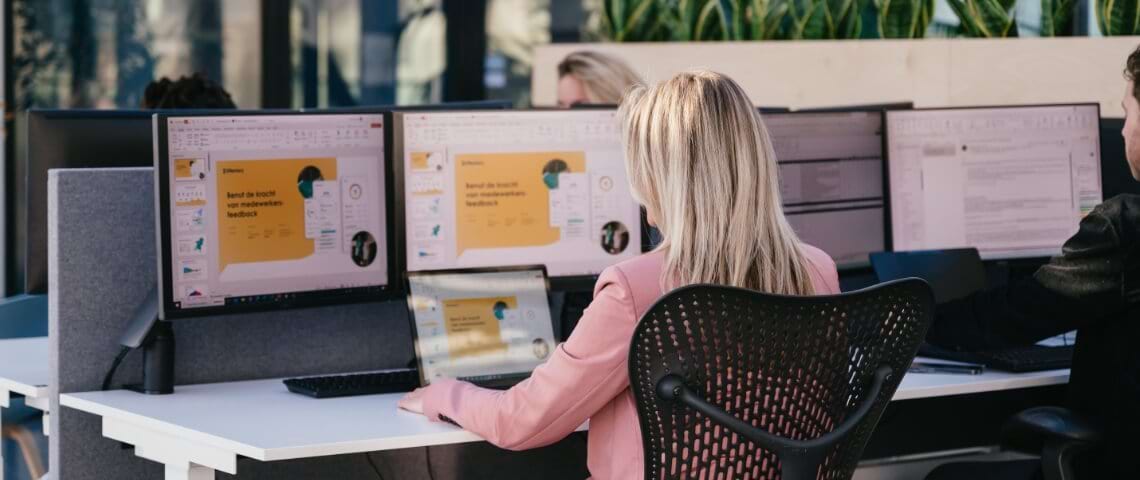Work is changing. The term itself is becoming more loosely defined. It’s less tied to place and time, now we can log in at home, check our mail everywhere and work before or after rush hour. Organizations are seeing this differently. There are more flex places than permanent workplaces and not everyone is in the office from 9 to 5. What do employees think of this? And what is their expectation for the future?
What does the office of the future look like?

Today, organizations often act as a kind of professional network. Professionals in various positions work closely together and each bring their own expertise in order to properly manage the customer. This can be done at the office, but also at home. In order to ensure that everyone is in alignment, agreements are made about rules, frameworks and quality standards, who is responsible for what task and how to efficiently pursue organizational goals. An office building is increasingly becoming a mix of meeting places in combination with quiet areas for undisturbed concentration. It is a home base where employees can exchange knowledge and connect to their needs.
Not just a cog in the wheel
It is expected to stay that way. The data collected from our employee surveys show that employees are positive about modernizing workplaces, as long as the goals and frameworks in which they work are clear. This ensures that employees do not feel lost. Employers are also positive if the results remain high. Modernization also contributes to the development and freedom that employees now desire, and it’s a fundamental freedom to choose and have responsibility over their work – rather than be a number or cog in the wheel. They also want to feel needed in the workplace. They want to do work that fits them and preferably, have the opportunity to do this in their own style. Literally and figuratively.
Personality in work
It does not matter how much the reward a worker receives, an extraverted personality full of ambition will never be motivated to do routine work without growth opportunities. An introvert personality can train itself in hard sales talks, but will never look forward to it or feel happy here. So it’s valuable for organizations to match the work with the personality. And above all: to give employees the freedom to carry out the work at their own discretion. In successful organizations, this is encouraged and facilitated – employees can express their personality in their work. The ideal workplace of the future, makes this possible.
How do you see this impacting your work? Let us know.